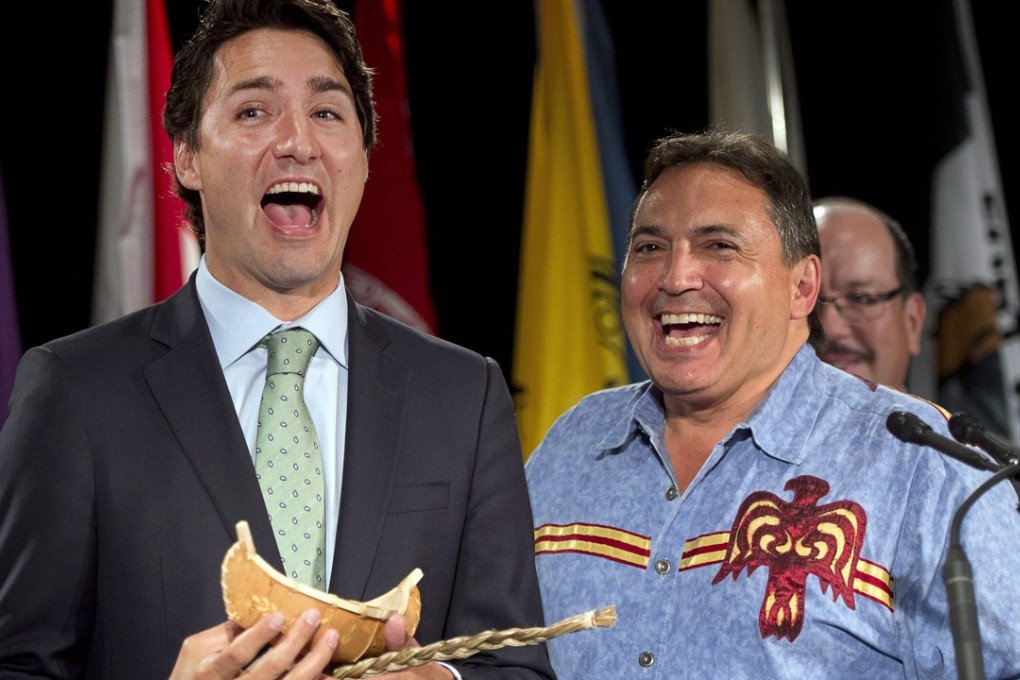The View | Aboriginal challenges to Canadian development could worsen under new PM Trudeau
Foreign investors wonder if it’s worthwhile to invest and create jobs in British Columbia

After three terms, Canada’s Conservative party misjudged the electorate and lost the Federal election to Justin Trudeau who revived his Liberal Party and won a majority government. Like his colourful father, Pierre Trudeau, Trudeau the younger inspired Canadians with a persona and message that gave him a surprise majority government.
In an apoplectic fit of self-righteousness Canadians elected Trudeau, someone whose resume and qualifications for being what is effectively the chief executive of the Canadian government are even thinner than US President Barack Obama’s. Beyond fulfilling his promise to legalise marijuana, Trudeau will need to actually revive an economy in recession. The choices he makes will influence the country’s energy relationship, trade and development with Asia
Canadians like to think of themselves as a kinder, gentler and more inclusive society to the point that being nice and “down to earth” is more important than making difficult and realistic choices. One of those controversies includes how Canada will or won’t accommodate and develop gas and oil pipelines and terminals in British Columbia and Alberta.
The controversial demands of First Nations to redress historical injustices are unfortunately driven by victim politics
Prime Minister Trudeau has pledged to revamp the country’s National Energy Board approval process. The Liberals want to give aboriginal people, known as the First Nations, and community members more opportunity to comment and question applications. And they want the National Energy Board to take a project’s climate impact into account when deciding whether it’s a good idea.
The controversial demands of First Nations to redress historical injustices are unfortunately driven by victim politics. Canadians are asked to bear and expatiate white guilt with historical revisionism that translates into massive land claims and billions of government dollars. The veracity of this political correctness rests on the assumption that vast swathes of Canada could be sensibly claimed by aboriginals who only sparsely populated the country when Europeans settlers first arrived.
The amount of political correctness invested into First Nations politics has almost guaranteed any critics are labelled as racists. It has also become costly and difficult to develop natural resources in Canada. And when you combine irrational levels of environmental activism, whose goal is not only to protect the environment, but create the nirvana of a petroleum-free society, it deters investment and job creation in many oil and gas opportunities.
Today, significant parts of British Columbia are legally claimed through court victories, which give First Nations authority over massive tracts of land. All of this poses restrictions or makes impossible, development and resource exploitation that is in the national economic interest.
